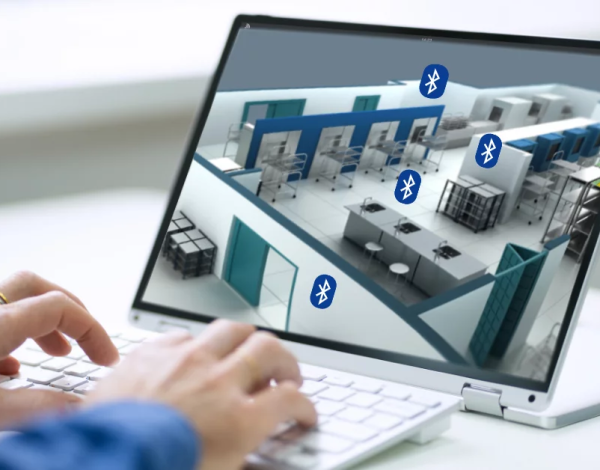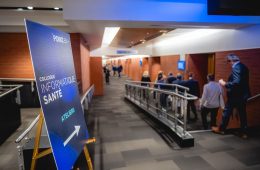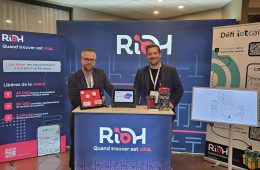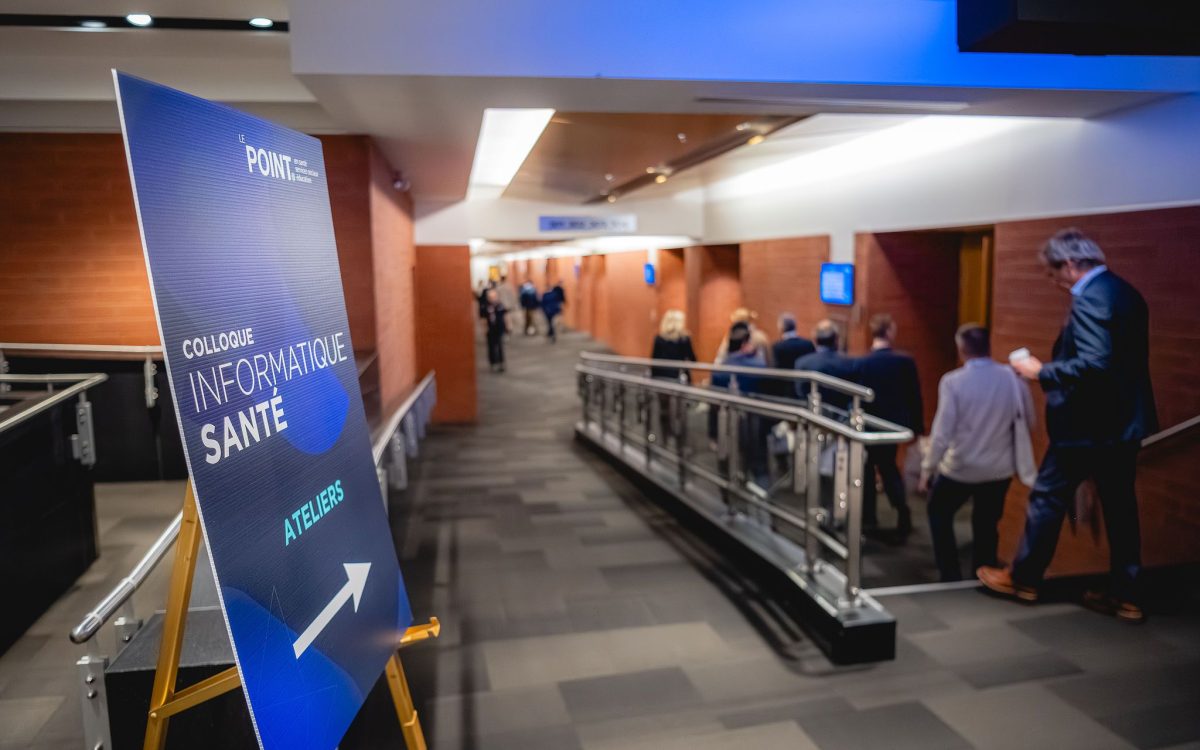
Colloque Informatique Santé : a look back at our participation
-
by RIOH
- 0 Comments
On Thursday, November 13, at le Colloque Informatique Santé in Quebec City, RIOH had the honor of co-hosting a workshop with Dyno Ung, Assistant Director of IT Resources at CIUSSS du Nord-de-l’Île-de-Montréal (CNIM). Alongside Simon Rousseau, CEO of RIOH, they presented: “DSN and Geolocation – Concrete Solutions to Tomorrow’s Challenges.”
This workshop provided an opportunity to discuss issues related to the Digital Health Record (DSN), major changes in clinical practices, and the growing importance of geolocation in supporting a modern, efficient, and sovereign healthcare network.
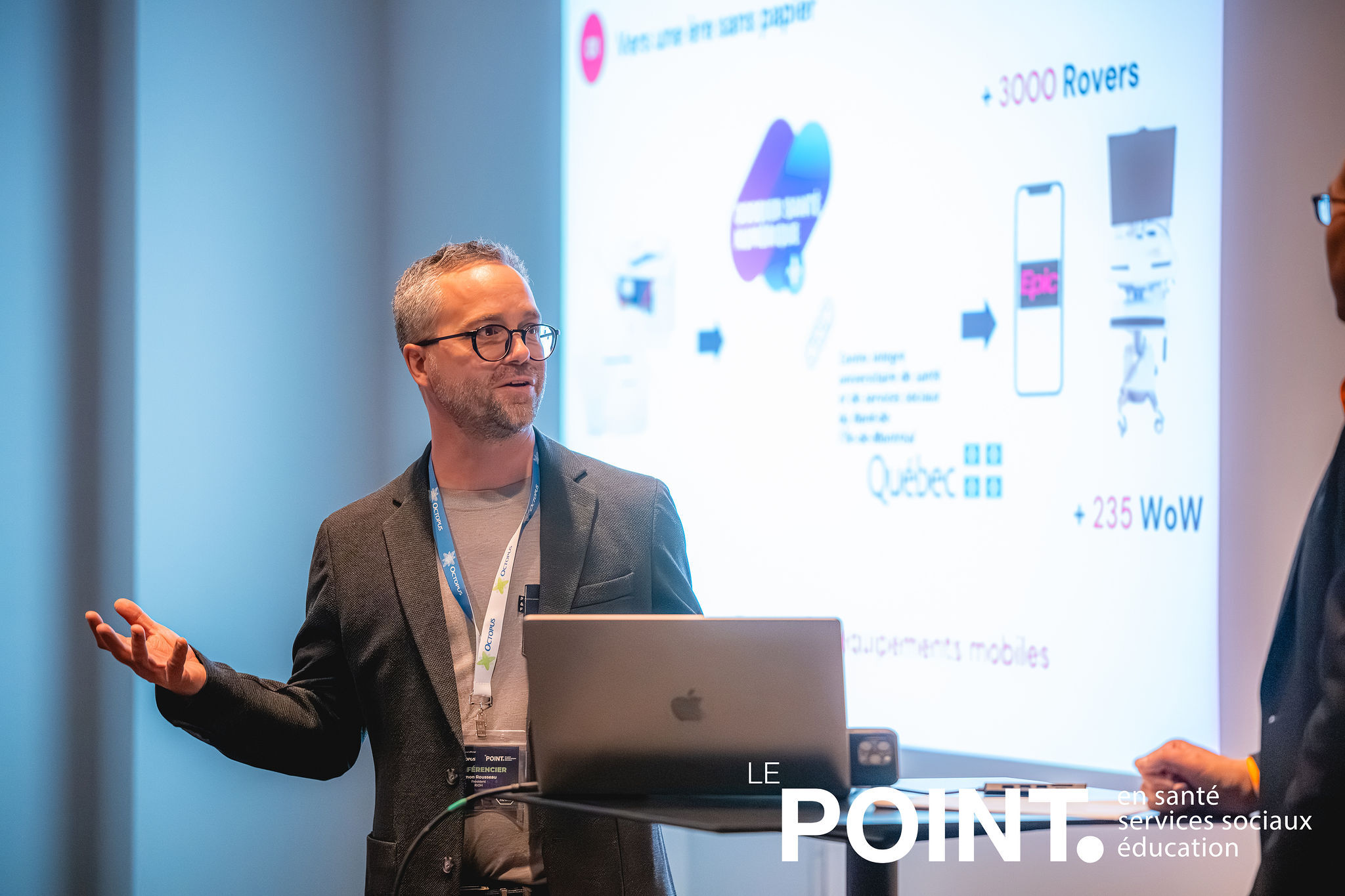
DSN and CNIM: context and ongoing transformation
CNIM is a showcase site for the DSN in Quebec, with a major digital project underway since 2023.
The shift planned for the coming months represents much more than a simple technological change; it is a profound transformation of practices. The transition to EPIC and the reduction in printers and fax machines are leading to a new organization centered on mobile phones, workstations on wheels (WoW), and fully digital documentation. These devices are becoming the new central tools for accessing patient records and entering data in real time.

Some numbers illustrating the scale of the change
For CNIM, this transformation is accompanied by a massive expansion of its equipment fleet:
And that’s just a glimpse…
Across Quebec, these volumes will soon multiply.
However, the more equipment there is, the more critical management and location become.
Problem: an exploding equipment fleet…
With thousands of mobile devices, there are many challenges:
loss or displacement of equipment
profitability and monitoring of the use of existing equipment
delays in treatment
increased stress for clinical teams
CNIM is already anticipating a significant increase in management complexity.
Limitations of traditional methods
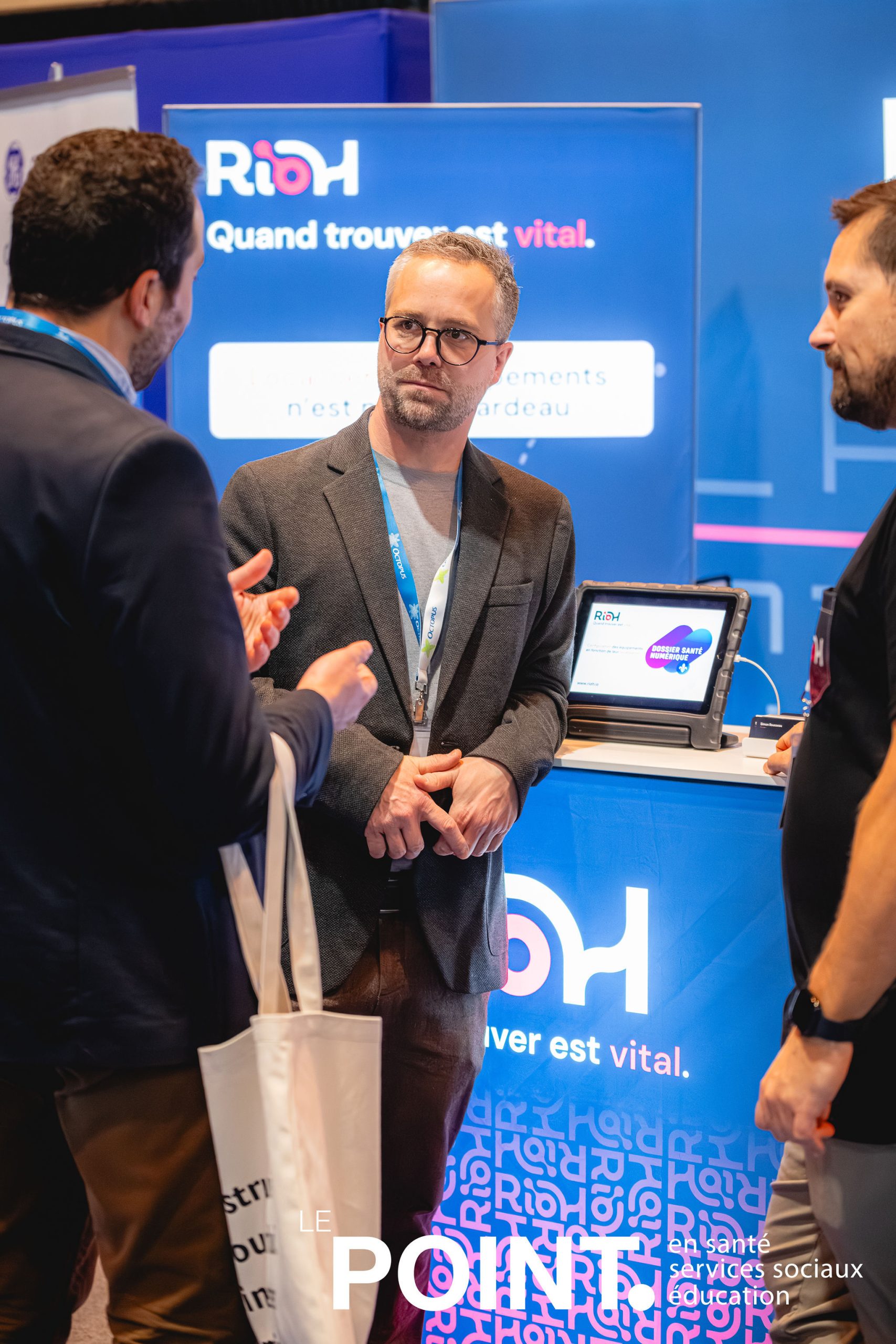
Manual inventories and generic asset management solutions are unable to keep up with the reality on the ground, between the constant circulation of phones, WoW movements, transfers between departments, and the lack of real-time visibility. Past experiences, particularly at CIT, have already shown the limitations of systems with insufficient coverage, as they become costly to deploy across an entire institution.
DSN and geolocation: an innovative response to tomorrow’s challenges
Without a dedicated solution, teams will have to locate their equipment manually, even with EPIC.
This is where the integration of geolocation comes into its own:
What it allows

WoWs, mobile phones, and biomedical equipment can be detected by Wi-Fi access points, located in IoTcare via an interactive map, and automatically synchronized in Octopus/Epic.
The benefits are direct:
better visibility of movements in real time
faster IT support
inventories always up to date
significant reduction in losses and search time
The CNIM/RIOH approach: a collaboration grounded in real-world realities
CNIM and RIOH have embarked on a joint initiative based on years of experience in the hospital environment at Sacré-Cœur Hospital in Montreal.
RIOH develops network gateways that enable:
the extention of BLE/Wi-Fi coverage without major construction work
the installation of a geolocation solution in just a few minutes
the reduction of the implementation costs and timeframes
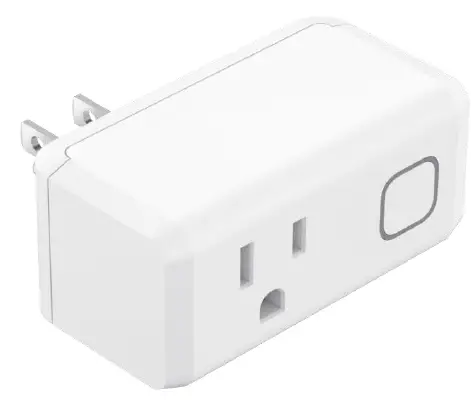
Toward integrated management that supports the clinical mission
The DSN enables more efficient and proactive asset management by tracking equipment movements, supporting predictive maintenance, optimizing resource use, improving allocation between departments, and cutting unnecessary purchases.

A local partnership, a strategic advantage
Partnering with a Quebec-based firm like RIOH provides responsive support, on-the-ground proximity, tailored training, and co-innovation aligned with the realities of the healthcare network.

Turning challenges into performance drivers
The challenge goes beyond a single facility.
It affects the efficiency of the entire healthcare network in Quebec.
Imagine a system where inventories are always up to date, losses are prevented and reduced, teams can quickly find what they need, and data flows automatically between geolocation, EPIC, and Octopus.
That is what we are building.
A huge thank you to Le Point en Santé for the invitation, and to all participants for the quality of the discussions.
We are proud to have represented RIOH alongside Dyno Ung and to actively contribute to the digital transformation of the network.
Would you like to explore a pilot project tailored to your reality?
Feel free to contact us. Together, let’s turn the DSN into a true driver of clinical and operational performance.

